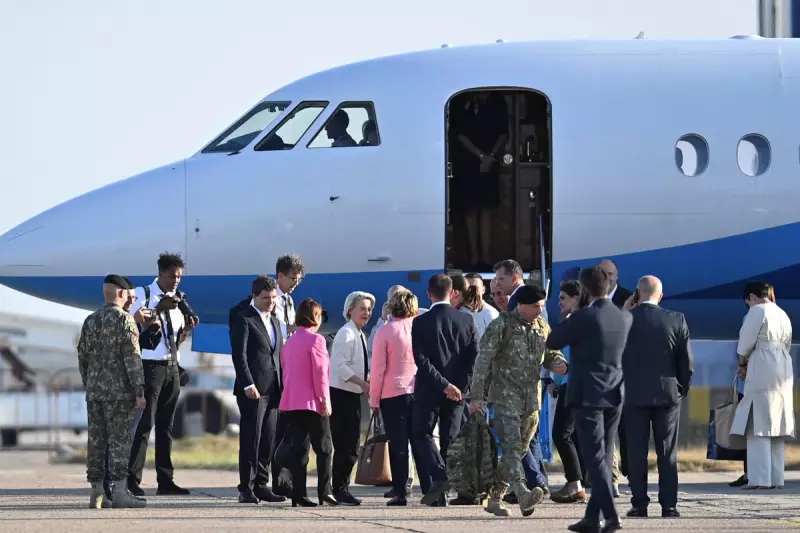
British aircraft traversing Eastern European airspace are confronting a dangerous and deliberate assault on their navigation systems, as Russia intensifies a campaign of GPS jamming that experts are calling a direct threat to civilian aviation safety.
The attacks, originating from Russian soil and the Kaliningrad exclave, have created a massive 'blind spot' over the Baltic Sea and surrounding regions, affecting hundreds of UK-registered flights weekly. Pilots are reporting complete loss of GPS signal, forcing them to rely on traditional, less precise inertial navigation from the Cold War era.
An Invisible Battle in the Skies
Data from GPSJAM reveals the shocking scale of this electronic warfare. Over the past 30 days, aircraft operating near Kaliningrad, Poland, and the Baltic states have experienced significant GPS interference on more than 2,300 occasions. The jamming is not random interference but a targeted military strategy that has escalated dramatically since the invasion of Ukraine.
"This is a deliberate attempt to disrupt Western aviation and test NATO's response," explains a senior defence analyst. "They are weaponising the electromagnetic spectrum, and civilian aircraft are caught in the crossfire."
From Commercial Jets to Government Aircraft
The targeting appears indiscriminate. Analysis of flight data identifies:
- Ryanair flights between the UK and Poland
- British Airways services to Eastern European capitals
- Wizz Air routes traversing the affected airspace
- Private business jets owned by UK corporations
- Even the RAF's VIP transport fleet, including planes used by senior government ministers
An incident in September 2023 saw the UK Defence Secretary's aircraft targeted by Russian jammers while flying near Kaliningrad, highlighting the brazen nature of these attacks.
The Return to Retro Navigation
With modern GPS systems compromised, pilots are undergoing intensive training to fall back on procedural techniques not widely used since the 1990s. This involves:
- Using ground-based radio beacons for positional updates
- Relying heavily on inertial navigation systems
- Increased verbal coordination with air traffic control
- Manual calculation of position, speed, and estimated time of arrival
"It's like asking a driver to navigate from London to Edinburgh using only a 1980s road atlas and no road signs," remarked one commercial pilot who regularly flies the affected routes. "It's safe but requires significantly more workload and is less efficient."
Industry Response and Mounting Concerns
Aviation authorities are treating the situation with utmost seriousness. The UK Civil Aviation Authority has issued multiple safety bulletins, while Eurocontrol, Europe's air traffic management body, has established a dedicated task force.
However, concerns are mounting about the long-term implications. Insurance premiums for flights through affected airspace are rising, and airlines face increased fuel costs due to less efficient routing. There are also fears that Russia could escalate to spoofing—creating false GPS signals to lead aircraft dangerously off course—a tactic already deployed in the Middle East.
As one security official starkly warned: "This is no longer just about military confrontation. Russia is demonstrating its capability to disrupt the fundamental systems that keep our civilian world running. The skies over Europe have become a testing ground for 21st-century hybrid warfare."





